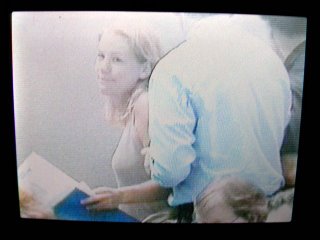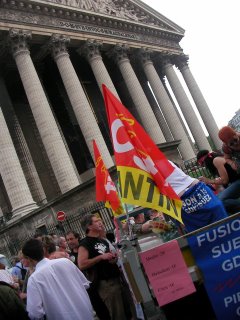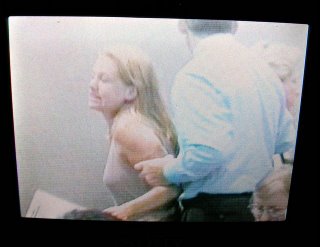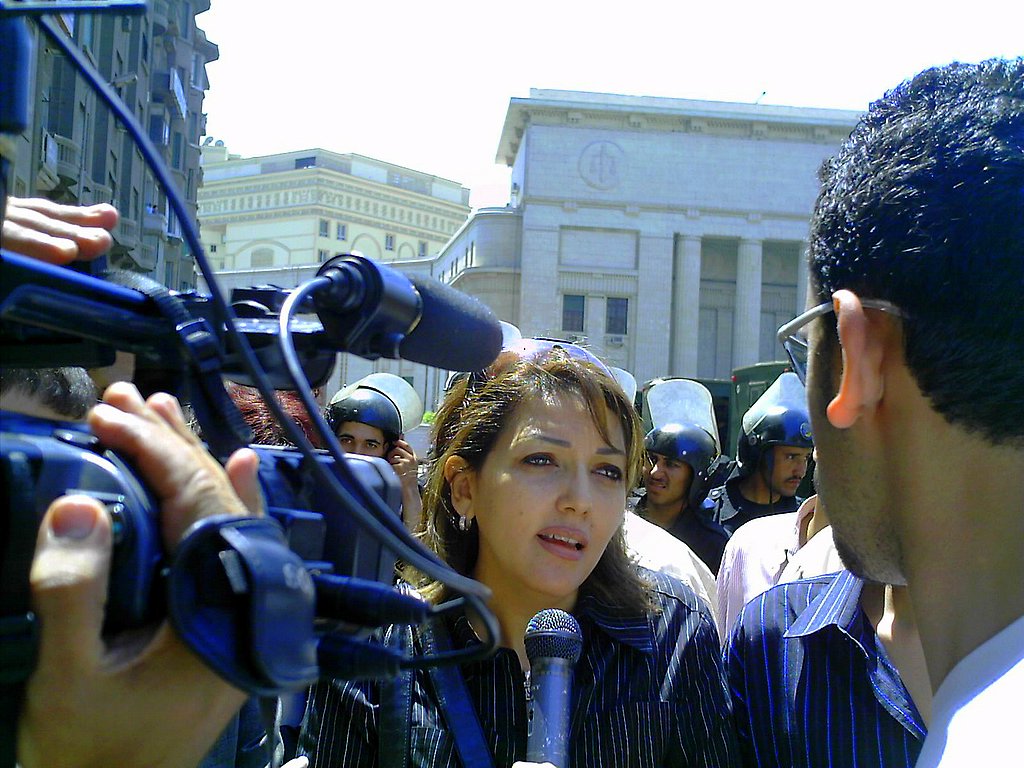
On a flight from Jordan back to Paris today, I watched the 2005 documentary "Enron: The Smartest Guys in the Room," which I hadn't seen before. It's a great reminder of the kind of BS "out-of-the-box" thinking and macho posturing that not only bankrupted a huge company, but helped drag the United States into the quagmire of Iraq. Afghanistan, after all, just wasn't a big enough war for tough guys like Dick Cheney and the neo-con clique at the Pentagon.
About two-thirds of the way through the movie, there is a chapter on Enron's rape of California in 2001, and a sequence in which protesters disrupt a conference with Enron CEO Jeff Skillings at the Commonwealth Club in San Francisco. One throws a blueberry tofu cream pie at the guy, or smears his face with it. That precise moment, alas, was not captured on tape, and I'm not sure who the intrepid pastry tosser was, but in the next scene we see Marla Ruzicka being dragged out of the room by a security man, shouting protests all the way.
I didn't meet Marla until the eve of the Iraq invasion, but saw her often in 2003 and 2004, when she was working to win recognition of and
compensation for the Iraqi victims of the U.S.-led invasion. She'd been connected with the lefties of Global Exchange before that, and made protest a way of life, but the shock of Iraq had turned her into a pragmatist who was able to work with the American military, if necessary, to get help to some of the suffering Iraqis. When
Marla was killed on the
infamous airport road last year, all of us who knew here felt the loss.
A quick check of Google entries tells me that others noticed Marla in the Enron film, but I was surprised and touched to see her unexpectedly once again, so full of life and fire.
 If you've got an hour or so to listen to Jim Lehrer's interview with Ben Bradlee, well, it's an education not only in the letter, but the spirit, of journalism as it should be.
If you've got an hour or so to listen to Jim Lehrer's interview with Ben Bradlee, well, it's an education not only in the letter, but the spirit, of journalism as it should be.






